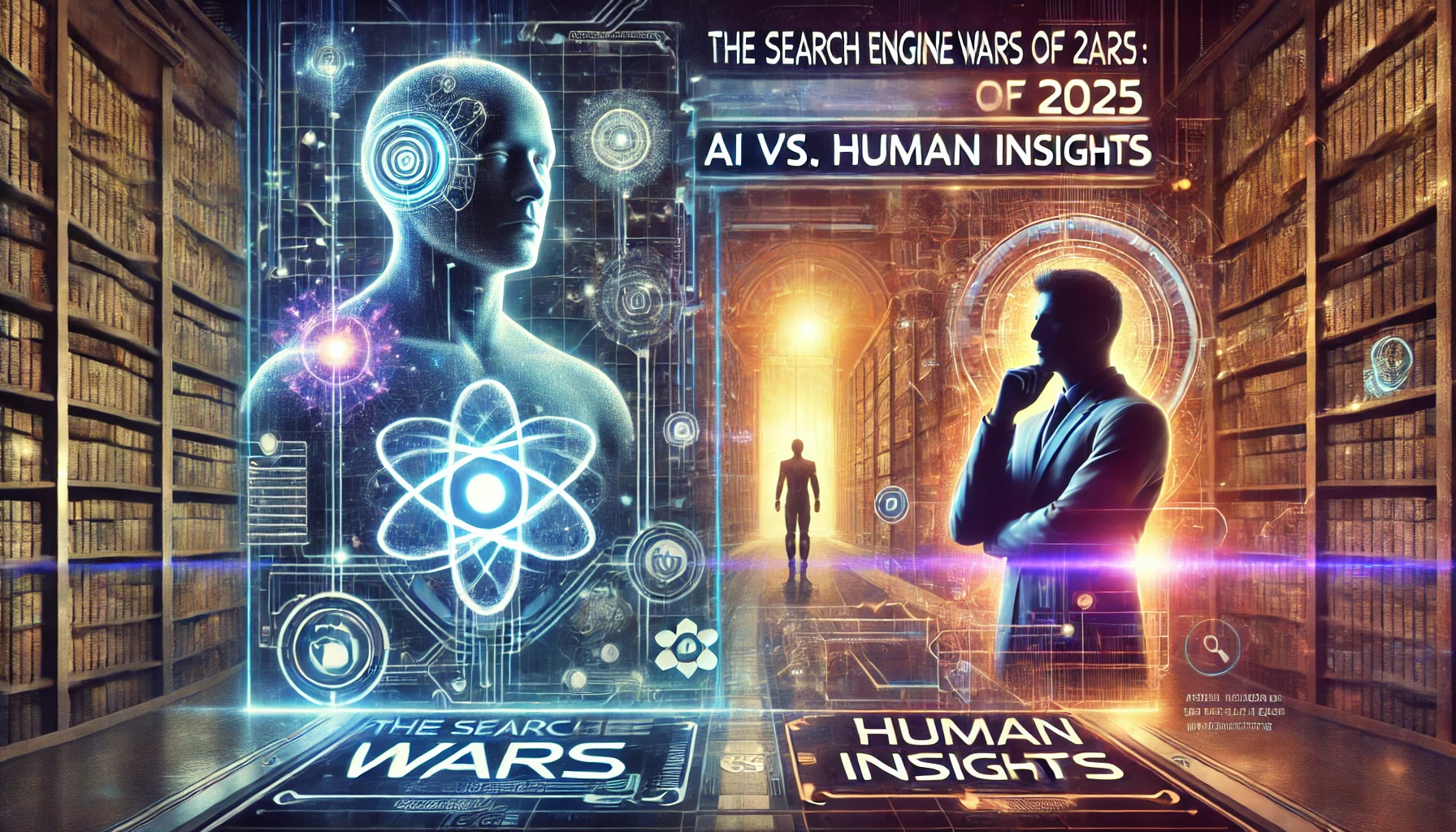The Search Engine Wars of 2025 AI vs Human Insights

By AI Quick Tool
17 Feb, 2025 · 5 months ago

The Search Engine Wars of 2025: AI vs. Human Insights
It’s 2025, and you type a query into your favorite search engine wars 2025. Immediately, you get an AI-generated overview that’s engaging, concise, and packed with information. But scroll a little further, and you’ll find a blog post written by a real human, full of personality and nuance.
Which do you trust? Which one appeals to you? Welcome to the ultimate face-off of the year: AI Overview vs. Human Insight. It’s a battle for your attention, and the stakes are higher than ever. Let’s take it step by step and see who’s really winning this search engine battle.
The Rise of AI in Search Engines
AI is no longer just a buzzword, it’s the backbone of how we find content online in 2025. Search engines have evolved from complex keyword matchers to brainy systems that predict what you want before you even type. But how did we get here?
How AI Overviews Took Over
It all started with the power of machine learning. Companies like Google and xAI introduced AI overviews that summarize web content faster than you can say “search.” These little pieces of information sit at the top of your results, giving you a quick and simple version of whatever you want to know. Need the weather forecast? AI has it. Want to learn about quantum physics? You’ve got it. It’s like having a super-smart friend who’s always one step ahead.
What makes AI so powerful in search?
Here’s the secret: AI thrives on data. It gobbles up billions of web pages, x-posts and whatever else it can find, then spits out answers with frightening accuracy. It’s not just fast, it’s adaptable. The more you use it, the better it gets at guessing what you want. Ever wondered why your search results seem like they’re reading your mind? That's where AI is doing its job.
Human Insight: The Old-School Champion
But wait, don't rule out humans just yet. There's something about a human putting something from the heart into words that AI can't mimic. Let's talk about why we're still in this game.
Why humans still matter
Think about the last time you read something that made you laugh out loud or cry a little. Chances are it was written by a human. We have this knack of putting experiences into words that touch you right in the emotion. Search engines may rely on AI, but users like you still want that authentic voice like a friend talking to you over coffee.
The emotional aspect of human-written content
AI can tell you what happened, but humans tell you why it matters. A machine can list the facts of a news story, but a writer can paint the sights, smells, sounds, and everything. That emotional hook? It's our greatest weapon, and it'll keep us relevant even in 2025.
Algorithms and Machine Learning Magic
Basically, it's all about algorithms, those clever little recipes that tell AI how to think. Machine learning lets it learn from every click, every search, refining itself like a chef perfecting a dish. By 2025, these systems will be so fast that they can recognize patterns we humans can't even dream of.
Real-Time Data Processing
Have you ever noticed how fresh search results look? That's the work of real-time processing. AI doesn't just sit on old data, it's constantly scanning the web, X and beyond, constantly updating its knowledge. It’s like a news ticker that never sleeps.
Personalization at scale
Here’s where it gets scary: AI knows you. It tracks your habits, your preferences, your quirks, and tailors results just for you. Looking for the “best pizza” in New York? It’ll steer you to the hole-in-the-wall joint you’ll love, not just the top-rated place everyone else looks at.
The Search Engine Battleground of 2025
Google vs. New Players
Google is still king in 2025, but it has company. New AI-powered engines like xAI are stepping up, promising smarter, faster results. The competition is stiff, and users are the winners.
User Preferences in the Mix
Here's the kicker: it's up to you. Some people like the quick overviews of AI; others go deeper than a human blog. Search engines are struggling to balance the two, but it's still not decided who will dominate.